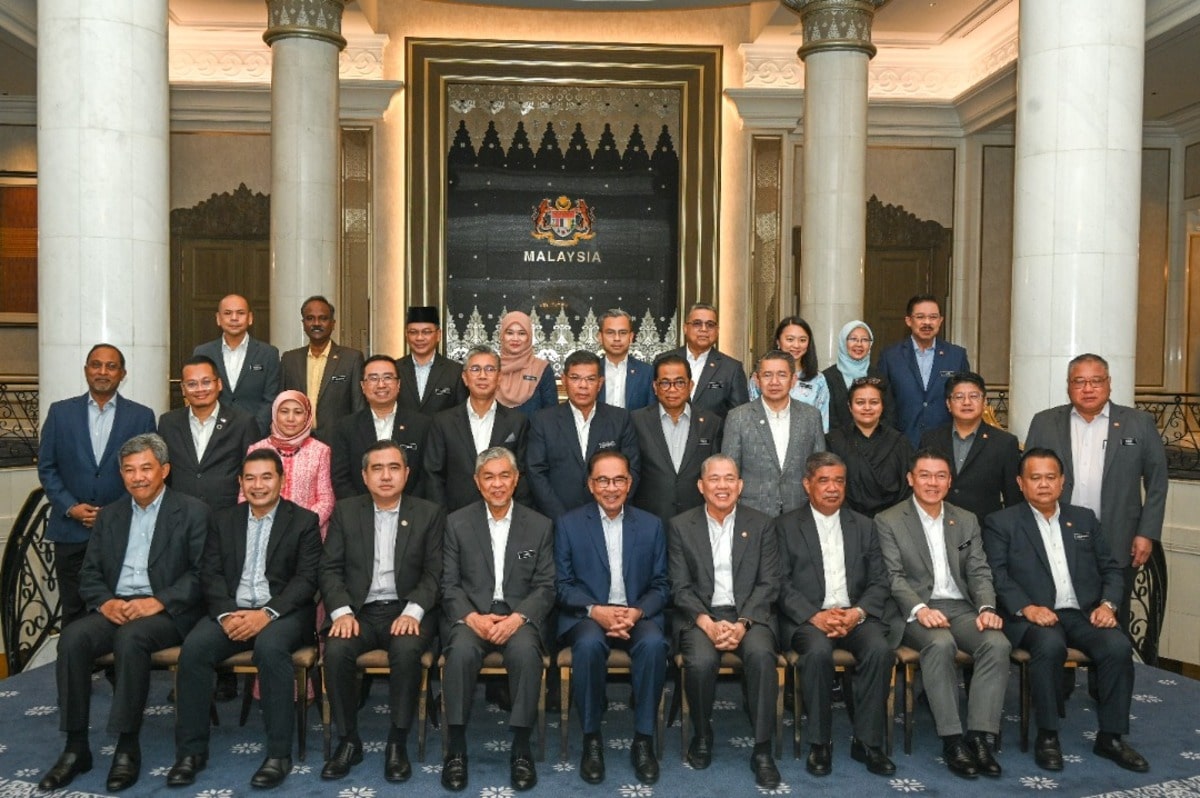KUALA LUMPUR, Nov 6 – Cabinet has decided to drop provisions on the tobacco and vape generational end game (GEG) ban from the Control of Smoking Products for Public Health Bill 2023.
This is because Attorney-General Ahmad Terrirudin Mohd Salleh views the proposed cohort or age-based prohibition – which seeks to ban tobacco and vape products for anyone born from January 1, 2007 – as unconstitutional.
The controversial tobacco and vape control bill also lacked support from the Attorney-General’s Chambers (AGC) overall that perceived the GEG as a contravention of Article 8 of the Federal Constitution that guarantees equality before the law.
“AG says it’s unconstitutional. If the government insists on it, we have to amend the Constitution,” a source told CodeBlue about the outcome of the past two Cabinet meetings over the last fortnight that discussed the Control of Smoking Products for Public Health Bill.
“The Attorney-General’s Chambers has strong views, especially on Article 8 of the Federal Constitution. To them, there will be two sets of laws for two different groups of citizens based on age.”
Unlike the current legal age of 18 for smoking, the GEG is a proposal to ban the sale of tobacco and vape products, as well as the act of smoking and vaping, to people born in or after a certain year – 2007 – throughout their entire lifetime.
The source indicated that Cabinet is not confident that the government will be able to get a two-thirds majority in the House to amend the Federal Constitution for the sake of the tobacco bill, even though, on paper, Prime Minister Anwar Ibrahim’s administration commands support from more than two-thirds of Members of Parliament.
According to the source, the Control of Smoking Products for Public Health Bill will likely be tabled in the subsequent parliamentary meeting next year. The current Dewan Rakyat meeting is scheduled to end in less than four weeks on November 30.
CodeBlue understands that ex-deputy minister and former MP R. Sivarasa from PKR presented legal views on the tobacco bill on behalf of the Ministry of Health (MOH) at last Friday’s Cabinet meeting.
“Sivarasa argued well – legal arguments like how things spelled out in the Constitution are not absolute,” the source told CodeBlue, adding that Sivarasa, however, was not able to convince Cabinet.
Sivarasa, a lawyer, declined to comment on his briefing to Cabinet, when contacted by CodeBlue.
Last April, former Chief Justice Zaki Azmi urged the government to decouple the GEG from the Control of Smoking Products for Public Health Bill. Like the AGC now, he similarly viewed the generational tobacco and vape ban as potentially contravening Article 8 of the Federal Constitution.
The former Chief Justice used a hypothetical scenario to illustrate his point: a group of colleagues, all of legal age, are smoking cigarettes during a break. However, only one of them is violating the law because he was born after January 1, 2007. Zaki argued that the GEG deprives consenting adults of their liberty and creates opportunities for corruption.
It is unclear if the tobacco and vape control bill will have to be tabled all over again for first reading as a completely new bill, since decoupling the GEG from the bill represents a major policy shift.
The government abruptly pulled the Control of Smoking Products for Public Health Bill from second reading in the Dewan Rakyat last month, reversing Health Minister Dr Zaliha Mustafa’s prior announcement on the planned October 10 tabling.
If the tobacco and vape control bill is to be revised and retabled as a completely new bill for first reading in 2024, it would be the third version, following the Control of Smoking Products for Public Health Bill 2023 under the current Anwar administration and the Control of Tobacco Product and Smoking Bill 2022 under the past Ismail Sabri Yaakob government.
Failure to table and pass the bill in whatever form by month end means that e-cigarettes and vape with nicotine may continue to remain legal for sale to everyone, including minors, for at least one whole year – after Dr Zaliha, in vetoing unanimous objection from the Poisons Board, deregulated liquid nicotine as a scheduled poison from the Poisons Act 1952 last March 31.
What complicates matters is also the fact that the MOH – ever since then-Health Minister Khairy Jamaluddin proposed the GEG last year – has been branding the tobacco bill to both MPs and the general public as a “GEG bill”.
Decoupling the GEG from the bill – which is meant to be Malaysia’s first-ever tobacco and vape control Act that regulates and controls cigarettes and vapes from all aspects, beyond a generational ban – may confuse and raise distrust from parliamentarians and Malaysians in general, especially those who oppose the GEG.
The Control of Smoking Products for Public Health Bill contains provisions on registration of tobacco products; advertisement, promotion and sponsorship; control of sale; control of price, packaging, labelling, manufacturing; designated smoke-free places; liability of manufacturer, importer and distributor; administration; enforcement; and trials and proceedings, among others.
The health minister’s imminent failure to secure tabling and passage of the Control of Smoking Products for Public Health Bill in the current Dewan Rakyat meeting leaves anti-tobacco advocates with just legal recourse.
Next December 6, the High Court is set to hear a judicial review application by three civil society groups, including the Malaysian Council for Tobacco Control, to nullify the exemption of liquid nicotine from the Poisons List.








